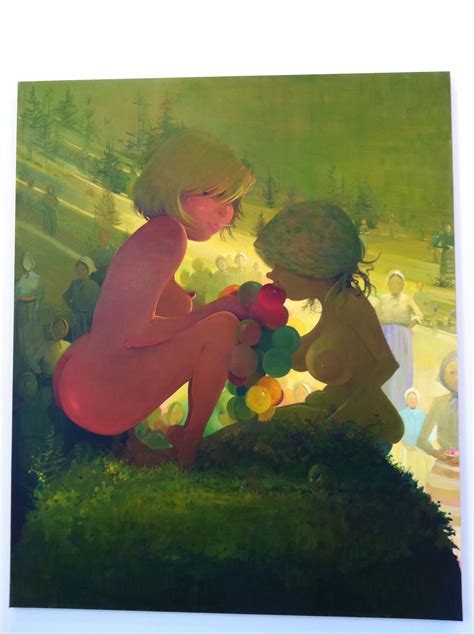A Quote by Joseph Brodsky
One of the worst things that can happen to an artist is to perceive himself as the owner of his art, and art as his tool. A product of the marketplace sensibility, this attitude barely differs on a psychological plane from the patron's view of the artist as a paid employee.
Related Quotes
And often he who has chosen the fate of the artist because he felt himself to be different soon realizes that he can maintain neither his art nor his difference unless he admits that he is like the others. The artist forges himself to the others, midway between the beauty he cannot do without and the community he cannot tear himself away from.
Art really has its source in the transcendent, the unmanifest field of pure consciousness, which is the non-changing, immortal field of all possibilities...When the awareness of the artist is in tune with this center of infinite creativity, his piece of art breathes fullness of life, nourishes the creator, the artist, and inspires his admirers with waves of bliss.
Whatever an artist's personal feelings are, as soon as an artist fills a certain area on the canvas or circumscribes it, he becomes historical. He acts from or upon other artists. An artist is someone who makes art too. He did not invent it. How it started — "to hell with it." It is obvious that it has no progress. The idea of space is given him to change if he can. The subject matter in the abstract is space. He fills it with an attitude. The attitude never comes from himself alone.
If being an anti-art artist is difficult, being an anti-art art historian is a hard position indeed. His doctrinal revolutionism brings forth nothing new in art but reenacts upheavals on the symbolic plane of language. It provides the consoling belief that overthrows are occurring as in the past, that barriers to creation are being surmounted, and that art is pursuing a radical purpose, even if it is only the purpose of doing away with itself.




































